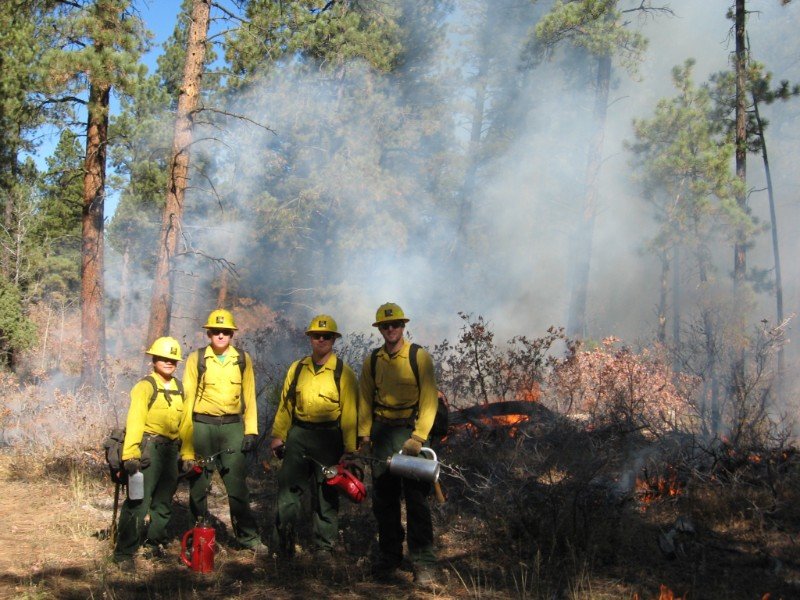Stumbling into Corps, Skating toward the Future
Max DeSalvo grew up in a concrete jungle: the suburbs of Chicago. However, seemingly born with a natural inclination to spend time outdoors, he got out – into his neighborhood, at least – every chance he could get. “I know Chicago’s parks like the back of my hand.”
Max’s persistence about getting outside paid off. He was fortunate to be an intern last year at the Catamount Institute in Colorado Springs, where he fell in love with Colorado. After that, he explored every possible avenue to bring him back to this state, with a goal of working in environmental education. He was searching online for a job and “stumbled across” an application with Southwest Conservation Corps (SCC) in Durango.
“I had never heard of conservation corps,” he said. “Even when I applied for the position, I didn’t understand what I was getting involved in. When I got to Durango, I was very glad I had.”
“I knew I needed to do it.”
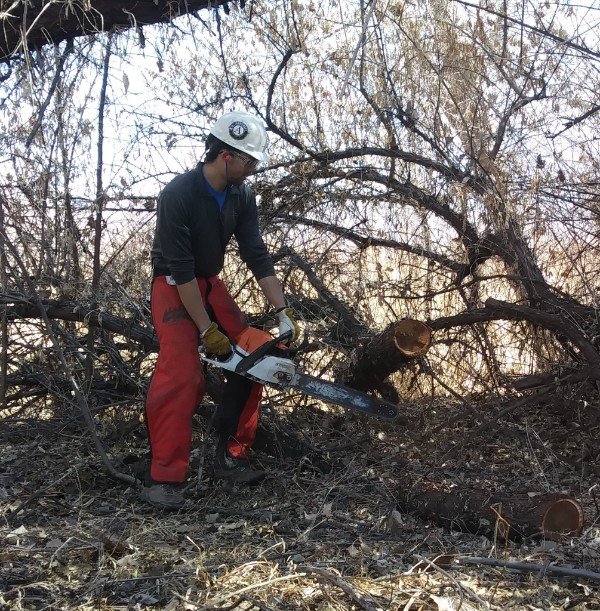
Max spent fall 2017 working with SCC, deriving great pleasure out of doing hands-on corps work, rehabilitating the environment and going camping. After the season ended, he had to go back to Chicago – and once again, longed to return to Colorado. Then he saw an opening for a crew leader position at Western Colorado Conservation Corps (WCCC).
“I knew I needed to do it,” he said of the crew leadership opportunity.
At WCCC Max led a chainsaw crew for 12 weeks, during which he gained a specialty in saw work on fencing, restoration, invasive tree removal and other projects. He gained an appreciation for removing invasive Russian olives and tamarisk.
“When you clear an area, you know it will be replanted with native species and have a positive impact. It is the most gratifying thing I do here,” he said. His crew removed trees from the banks of the Dolores River. He recently revisited the area and discovered new populations of native willow and cottonwood growing at the project site. “I personally had an impact on that large acreage. I feel like I made a change for the benefit of the ecosystem.”
“I feel like I made a change for the benefit of the ecosystem.”
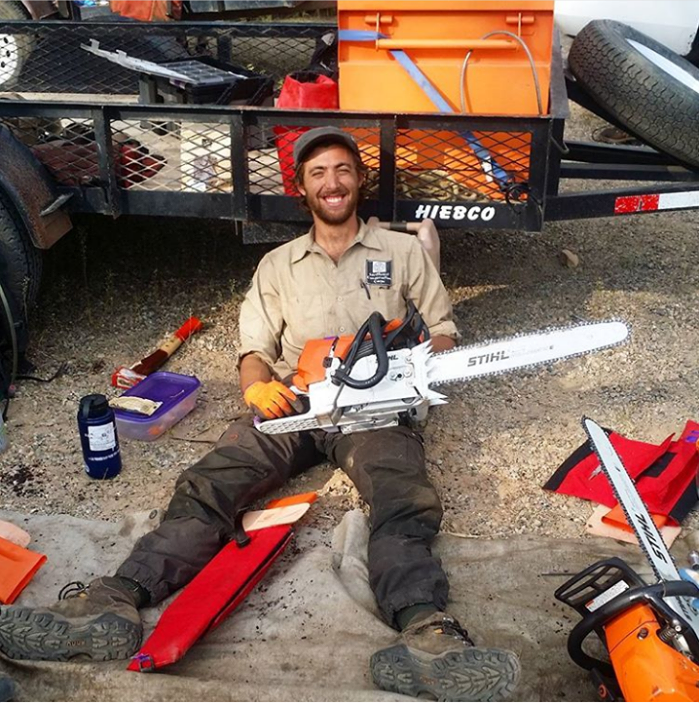
At 25, Max is aware that his opportunity to earn AmeriCorps Education Awards will end at age 26. Getting those awards – alongside experience that will help him pursue his career goals – is a major reason he’s involved with corps.
As an AmeriCorps member, Max also benefits from a non-competitive status when applying for federal opportunities through sites like usajobs.com. “That will increase my chances of creating more visibility for my application and landing an interview.”
Max plans to apply his AmeriCorps Education Award toward National Outdoor Leadership School (NOLS) courses in rock climbing, backpacking and rafting, as well as wilderness medicine and outdoor leadership. He wants to develop the skills he needs to work in the outdoor recreation field and then get hired by either NOLS or Outward Bound.
His ultimate dream is to open an outdoor guide agency on the Continental Divide Trail. “Every year there is a pilgrimage of people who want to hike the whole thing,” he said. To support hikers and other outdoor aficionados, his agency will be a combination gear shop, hostel and café where expeditioners can stop, stay and re-supply – or hire a guide to take them climbing, hiking or backpacking.
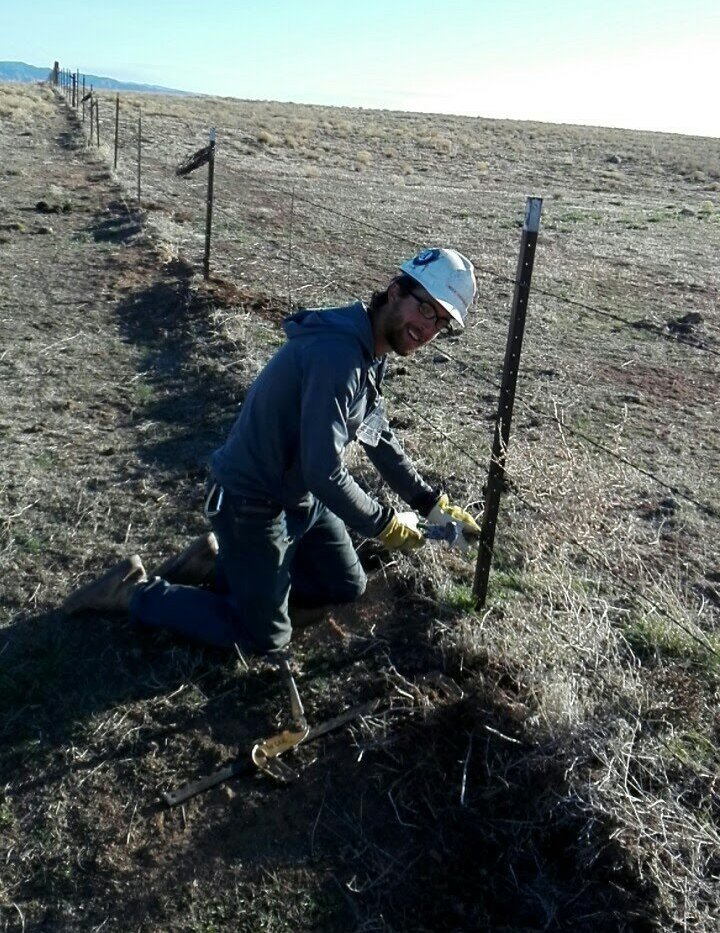
Max’s conservation corps experience has opened his eyes to the vast possibilities of working in the outdoors and equipped him with vital new skills. He has developed greater confidence in his abilities, learned how to think through challenging situations, and does what is required to get the job done.
“Corps has been extremely instrumental in forming my ideas and helping my ability to put them into real life,” he said.
CYCA and Corps Participate in Panel
In April, CYCA participated in a two-day event organized by the National Commission on Military, National, and Public Service, created by U.S. Congress to develop recommendations concerning the military draft and how to increase interest in service among American youth. Held at the Denver Museum of Nature & Science, the event was part of a series of public meetings held across the country.
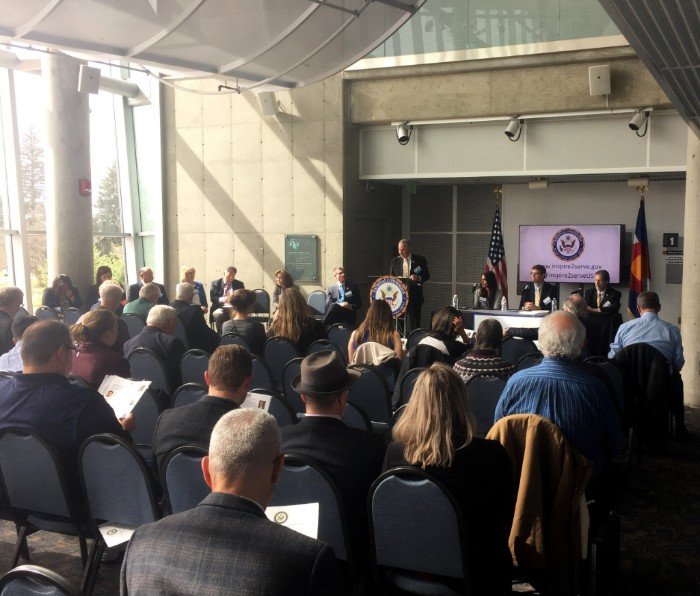
On a panel titled, “Benefits and Barriers of Serving in Colorado,” CYCA’s Scott Segerstrom discussed the tremendous benefits of serving in AmeriCorps.
Among those benefits are valuable job training and career readiness, the ability to earn AmeriCorps Education Awards to pay for future tuition or existing student loans, and the camaraderie of serving one’s community together with peers.
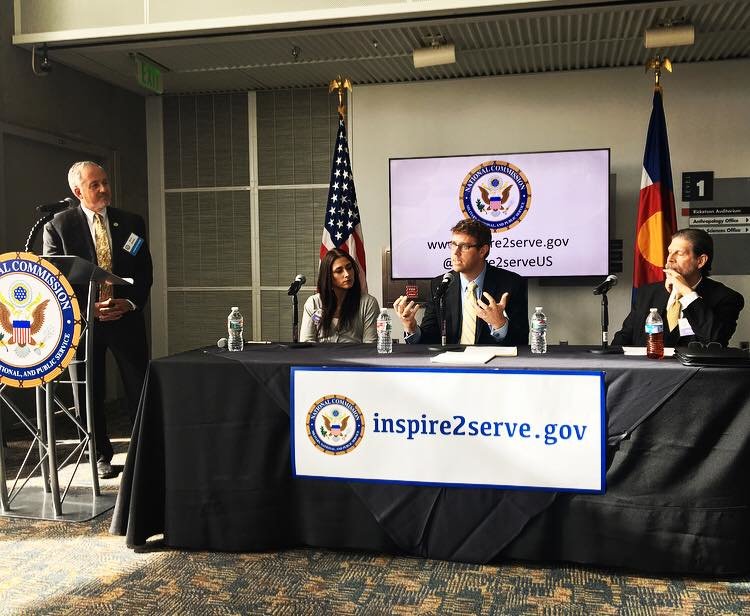
He also highlighted the many challenges facing young people today – including the disproportionate rise in the cost of living compared to service stipends, and the difficulties of navigating government agencies’ complex hiring processes (and how CYCA’s Careers in Natural Resources Initiative is helping to mitigate that challenge).
Finally, Scott worked to break down the stereotypes of conservation jobs – for example, the notion that all conservation jobs are science-related, that one must have a college degree to pursue these careers, and that this type of work only takes place in remote environments.
On the second day, the commission invited conservation leaders to a closed listening session at the Community Resource Center in downtown Denver. The session addressed the financial barriers to service that youth and young adults face, highlighted ways to engage younger audiences in service, and discussed the intersection of conservation and service in Colorado.
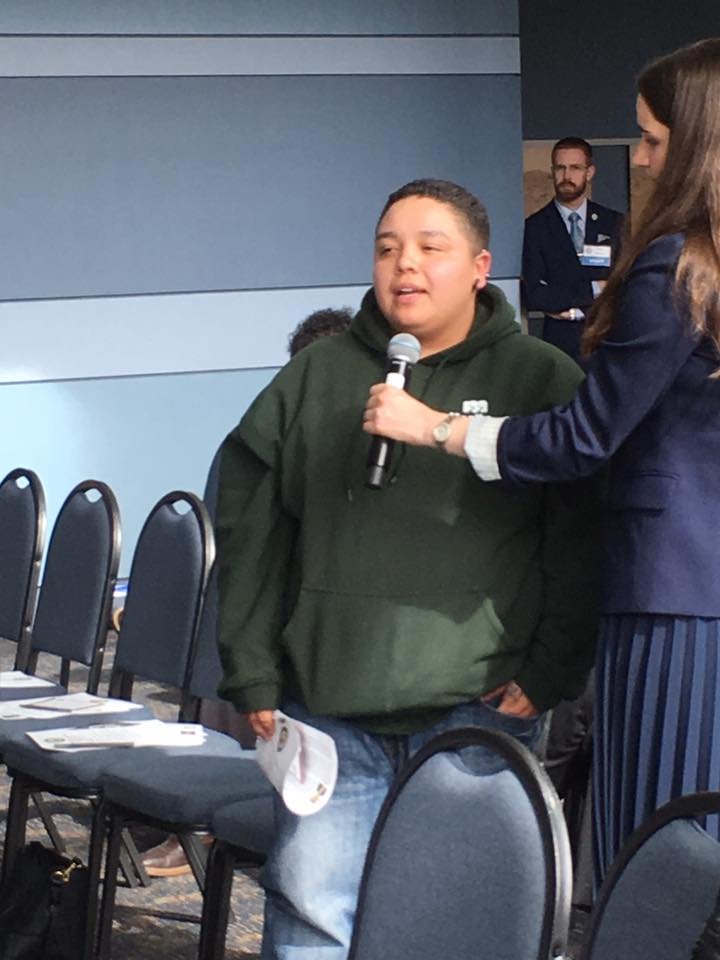
CYCA, Mile High Youth Corps, Rocky Mountain Youth Corps and Conservation Legacy all participated, as well as national service alumni, including a member of MHYC. Segerstrom opened the meeting. Emphasizing the importance of engaging youth and young adults in service to their country – in cities and the wilderness/urban interface as well as in the backcountry – he explained why the intersection of conservation and service is so critical.
As an illustration, Segerstrom pointed out the sheer vastness of Colorado’s public lands and how they are an essential economic driver in our state; the vulnerability of our state’s natural resources in the face of drought and wildfires; and the threat of population growth and how to balance the economic benefits of it with the impact on our outdoor resources.
CYCA was honored to take part in such important conversations!
REI $15K Grant Makes Trail Accessibility Projects Possible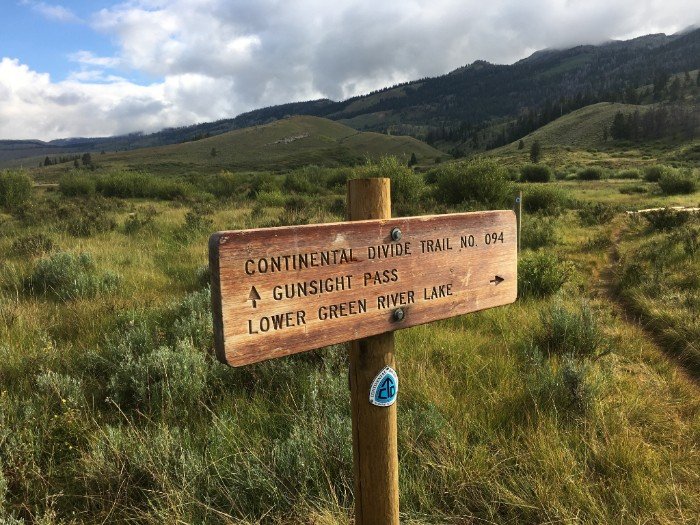
For the sixth year in a row, REI is supporting CYCA and youth corps. REI has awarded a $15,000 grant to support 14 weeks of extensive trail projects that will be implemented across the state by youth corps.
These include projects along two sections of the Continental Divide Trail: Winter Park and Gunsight Pass; projects in Rocky Mountain National Park along Longs Peak and Lawn Lake Trails; and projects on the Young Gulch Trail, accessible from Ft. Collins.
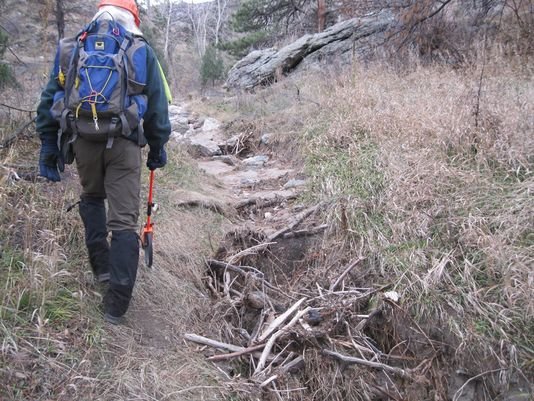
The Young Gulch Trail, a popular multi-use trail that leads up the Poudre Canyon, has been closed since the devastating 2013 flood. It will re-open this summer after work is complete.
These trail construction and maintenance projects will improve accessibility
and outdoor experiences for hikers, paddlers, climbers, birders and others who recreate on public land in these beautiful areas across Colorado.
Other benefits abound as these projects provide local employment, open up college scholarship opportunities and boost economic development. They will:
-
- Create jobs for 40 youth, young adults and veterans recruited by the corps from local communities. In 2017, 28 percent of corps members had no prior work experience and the corps provided their first job reference and professional development.
-
- Provide members with the opportunity to earn service hours required for their AmeriCorps Education Awards, which they can apply toward future education or to pay back existing student loans.
- Help maintain outdoor recreation, the economic lifeblood of our great state’s local communities. In Colorado, the Outdoor Industry Association estimates that outdoor recreation generates $28 billion in annual consumer spending and $2 billion in state and local tax revenue. It is critical that the outdoor infrastructure on public land remains accessible and well-maintained to keep this economic driver going.
The REI grant will play a critical role in enabling CYCA to mitigate the costs of trail projects in Colorado this year, as it helps meet the federal government’s requirement that 25 percent of project funds be matched by non-federal grant dollars. The total cost of the project is $106,400.
“We are very grateful to REI for its generous contribution,” said Scott Segerstrom of CYCA. “By helping us meet the federal government’s matching requirement, REI’s grant really makes these projects possible.”
Thank you, REI!
GOCO Investment Reauthorized to 2049
Earlier this month, Governor Hickenlooper signed into law a bill to extend the Lottery Division within Colorado’s Department of Revenue – with important and exciting implications for the work of CYCA and corps around the state.
The law had previously scheduled the termination of the Lottery Division for the year 2024; now, that timeline has been extended by 25 years to July 1, 2049 – thereby increasing opportunities for corps to conduct conservation projects and young people to serve Colorado.
Since 2011, CYCA’s partnership with Great Outdoors Colorado (GOCO) has included investments in corps of $1 million annually. The Trust for Public Land’s study, The Economic Benefits of Great Outdoors Colorado and the Conservation Trust Fund, published in January, examined the GOCO-CYCA relationship. It reported the following benefits to Colorado:
-
- 321 GOCO projects completed through 2017
-
- More than 50 miles of trail constructed and 85 miles of trail improvements
-
- 100 miles of fencing construction and maintenance
-
- 13,600 trees planted
- 200 acres of invasive tamarisk mitigation
In addition, between 2011 and 2016:
-
- Corps members supplied 236,000 hours of service valued at $4.68 million
- Corps members received 22,900 hours of environmental education and leadership development that is valued at $456,000
And between 2011 and 2017:
- Corps members have earned 1,365 AmeriCorps Education Awards on GOCO projects valued at $1,938,566
CYCA is ever grateful for the chance to continue its fruitful partnership with GOCO – and is particularly thankful to the sponsors of the bill, Sen. Jerry Sonnenberg and Sen. Leroy Garcia in the Colorado Senate and Rep. Jeni James Arndt and Rep. Cole Wist in the House of Representatives.
CYCA Named in Senate Resolution Encouraging GOCO to Serve Vets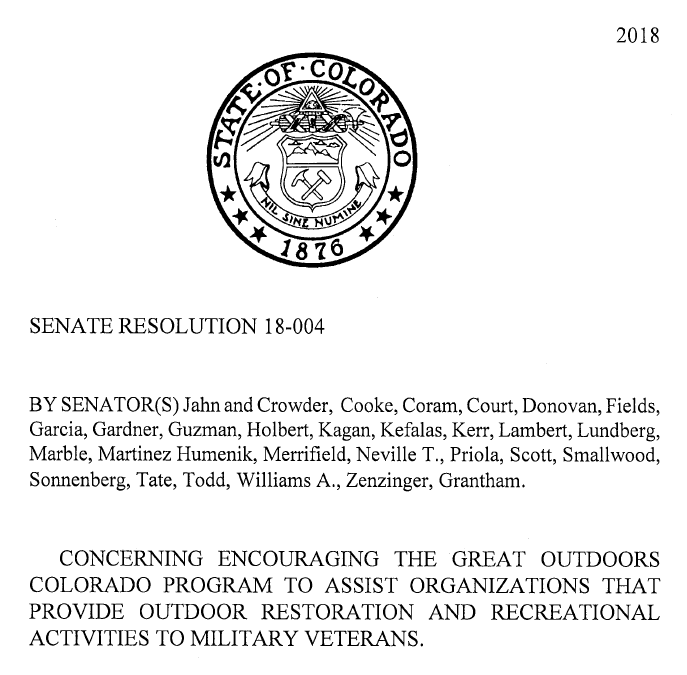
In April, the Colorado State Senate passed a resolution that “encourages” GOCO to assist organizations that provide outdoor restoration and recreational activities to military veterans.
CYCA is named as a GOCO partner in the resolution, which was sponsored by Sen. Cheri Jahn and Sen. Larry Crowder and passed with a vote of 34 to 0.
CYCA is proud to work with our partners to specifically engage veteran crews on conservation projects. Southwest Conservation Corps co-founded the current Veterans Fire Corps model, which trains veterans in wildland firefighting and offers career placement assistance, and which has been adopted by other corps across the country.
In addition, CYCA has an agreement with the Bureau of Land Management to create career-oriented internships specifically for veterans. (It is important to note that this is separate from GOCO projects, as GOCO may not fund or support federal land activities.)
We are very grateful to the General Assembly and to GOCO for prioritizing veterans, who are among the most vulnerable to extended unemployment. We look forward to continuing to serve veterans through this important work!
CYCA Launches New Strategic Plan
In March 2017, CYCA engaged in a process to update the organization’s strategic plan. CYCA partnered with Corona Insights for the development of a plan that would identify our priority areas for the next five years. After an in-depth process leveraging input from corps, partners, funders, CYCA staff, the board and contractors, CYCA launched the new strategy in April of this year.
We are pleased to share a few key highlights here. Below are our mission, vision and values statements, as well as our five key goals and their outcomes. Feel free to ask questions or request additional details about our strategy!
MISSION
The Colorado Youth Corps Association serves on behalf of conservation corps that transform lives and communities through service, personal development and education statewide.
VISION
The Colorado Youth Corps Association aspires to be the leader in conservation and service and empowers corps to change lives statewide.
VALUES
-
- Transformation – The power of the corps experience makes positive, significant and enduring changes to the lives of youth and young adults
-
- Collaboration – We are better, stronger and more impactful when we work together
-
- Impact – Every action seeks to maximize positive impact
-
- Service – We are dedicated to serving member corps and our partners
- Stewardship – Every place in Colorado is special, and therefore local knowledge and relationships are necessary for enduring stewardship
Goal 1: Secure project work on behalf of members. Key outcomes: Member corps have numerous opportunities to serve a variety of land management partners because CYCA efficiently administers contracts and grants.
Goal 2: Channel equity, diversity, and inclusiveness (EDI) resources to corps, and empower them to implement EDI programs and measure outcomes. Key outcomes: Barriers to participating in youth corps are reduced, allowing young people from everywhere in the state to have access to a local corps experience. Corps crews and interns are diverse across many factors such as race, geography, social-economic status, values and previous experience; support for diversity is deeply integrated into corps culture.
Goal 3: Optimize member services and programs. Key outcomes: Valuable programs and services are at full potential and are effectively and efficiently provided by CYCA to member corps or on their behalf. Corps leaders are involved and invested in these programs and services, which are advancing corps throughout Colorado. CYCA members confidently know who CYCA is. They are proud to be in the association, and they feel it reflects their values and practices.
Goal 4: Ensure revenues are resilient and sufficient. Key outcomes: CYCA makes strategic decisions and invests resources necessary for long-term success as it navigates changing external conditions.
Goal 5: Tell the collective corps story to a broader audience. Key outcomes: Key audiences throughout Colorado understand the collective influence of local conservation corps through statistics, stories, pictures, and video. Leaders recognize how the story of conservation corps and the corps experience aligns with the needs and values of their communities.

- Aspen Times: Skico employees foundation awards record amount for environmental causes
- Times-Call: Boulder County Youth Corps seeks workers for new season
- Durango Herald: Railroad nationally recognized for fire mitigation
- The Business Times: West Slope Youth Corps to Share in Funding
- Gazette: Letters: Let’s Keep Colorado Special
- Walton Family Foundation Blog: On Impaired Rivers, Reclaiming Native Habitat One Mile at a Time
- Alamosa News: Tipton Advances CSC Opportunities
- SavingPlaces.org: Reflecting on HOPE Crew at Grand Teton National Park
- Outside Online: New (Bipartisan!) Conservation Corps is a Win-Win
- Denver Post: Study finds Great Outdoors Colorado Gives State $507 Million Economic Boost
- Bureau of Land Management: Shared Stewardship: Building Tomorrow’s Workforce
- The Corps Network: 2018 Project of the Year
- Huffington Post: Veterans Service and Conservation Corps: Career Pathways through Continued Service
Useful Links
